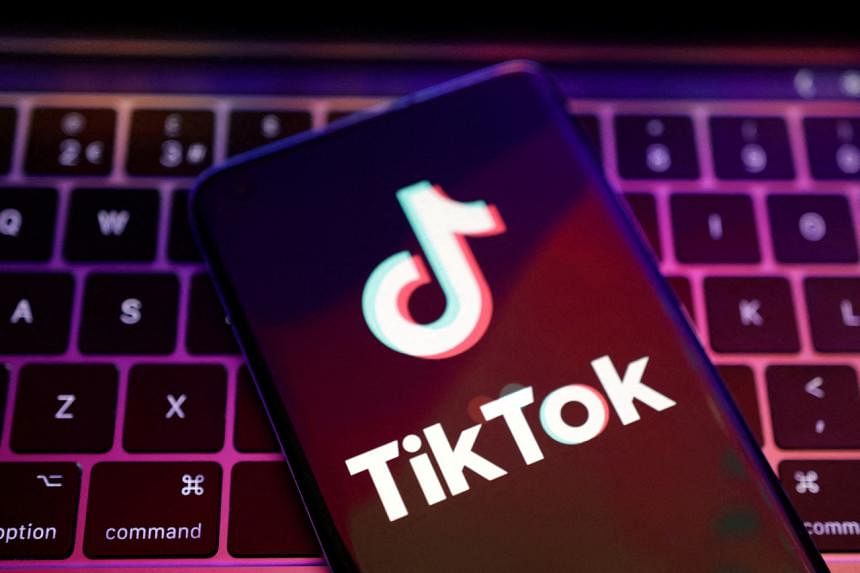NEW YORK - The Biden administration and TikTok have drafted a preliminary agreement to resolve national security concerns posed by the Chinese-owned video app but face hurdles over the terms, as the platform negotiates to keep operating in the United States without major changes to its ownership structure, four people with knowledge of the discussions said.
The two sides have hammered out the foundations of a deal in which TikTok would make changes to its data security and governance without requiring its owner, the Chinese internet giant ByteDance, to sell it, said three of the people, who spoke on the condition of anonymity because the negotiations are confidential.
The two sides are still wrangling over the potential agreement.
The Justice Department is leading the negotiations with TikTok, and its No. 2 official, Lisa Monaco, has concerns that the terms are not tough enough on China, two people with knowledge of the matter said.
The Treasury Department, which plays a key role in approving deals involving national security risks, is also sceptical that the potential agreement with TikTok can sufficiently resolve national security issues, two people with knowledge of the matter said.
That could force changes to the terms and drag out a final resolution for months.
TikTok, one of the world’s most popular social media apps, has been under a legal cloud in the United States for more than two years because of its Chinese ties.
Lawmakers and regulators have repeatedly raised concerns about TikTok’s ability to protect the data of American users from Chinese authorities.
In 2020, president Donald Trump tried to force ByteDance to sell TikTok to an American company and threatened to block the app.
If completed, an agreement with the Biden administration is likely to be highly scrutinised, as TikTok has become a symbol of the Cold War-like atmosphere in relations between Beijing and Washington.
As part of the tit-for-tat, the nations are battling over primacy in technology and digital data. Scepticism towards China is a built-in feature of US politics, and the talks are taking place just weeks before November’s midterm elections.
Completing an agreement may also be difficult at a tricky political moment for the Biden administration, which has stepped up its cadence of criticism and executive actions addressing China.
The policy towards Beijing, while expressed in more diplomatic language, is not substantially different from the posture of the Trump White House, reflecting a suspicion of China that now spans the political spectrum.
Nevertheless, Republicans have criticised the administration for being too soft on China.
“Anything short of a complete separation” of TikTok from ByteDance “will likely leave significant national security issues regarding operations, data and algorithms unresolved”, Senator Marco Rubio from Florida, the top Republican on the Intelligence Committee, said in a statement.
TikTok has been negotiating with representatives for the Committee on Foreign Investment in the United States, or CFIUS, a group of federal agencies that reviews investments by foreign entities in US companies, to resolve concerns that the app puts national security at risk. The group would need to sign off on an agreement, and potentially President Joe Biden as well.
A spokesperson for the Treasury Department, which leads the group, said that as a general matter, the committee “is committed to taking all necessary actions within its authority to safeguard US national security”.
TikTok declined to comment on the talks but said it was “confident” that it was “on a path to fully satisfy all reasonable US national security concerns”.
At a Senate hearing about social media and national security this month, Vanessa Pappas, TikTok’s chief operating officer, declined to commit to cutting employees in China off from the app’s American data but said any agreement with the government would “satisfy all national security concerns”.
A Justice Department spokesperson declined to comment, as did a spokesperson for the White House. ByteDance did not respond to a request for comment.
Tensions over TikTok have mounted for years. After Trump ordered ByteDance to sell the app or risk being blocked from Apple’s and Google’s app stores in 2020, the Chinese company appeared to reach an agreement to sell part of TikTok to Oracle, the American cloud computing company.
But the deal never closed, and a federal court ruled against Trump’s attempt to block the app.
That left TikTok’s fate in the hands of Biden. Last year, he issued an order rolling back Trump’s demand that TikTok be blocked. His administration set out to develop a policy toward the app and others owned by foreign entities.
The Biden administration’s plans for TikTok were thrust back into the spotlight in June when BuzzFeed News reported that the company’s employees in China had access to TikTok’s US data as recently as this year.
Negotiations between CFIUS and TikTok have dragged on as officials wrapped their arms around complex technical questions about the app. They edged closer to a detailed agreement in recent months, two people with knowledge of the discussions said.
Under the draft terms, TikTok would make changes to three main areas, the people with knowledge of the discussions said.
First, TikTok would store its American data solely on servers in the United States, probably run by Oracle, instead of on its own servers in Singapore and Virginia, two of the people said.
Second, Oracle is expected to monitor TikTok’s powerful algorithms that determine the content that the app recommends, in response to concerns that the Chinese government could use its feed as a way to influence the American public, they said.
Lastly, TikTok would create a board of security experts, reporting to the government, to oversee its US operations, three people with knowledge said. NYTIMES

